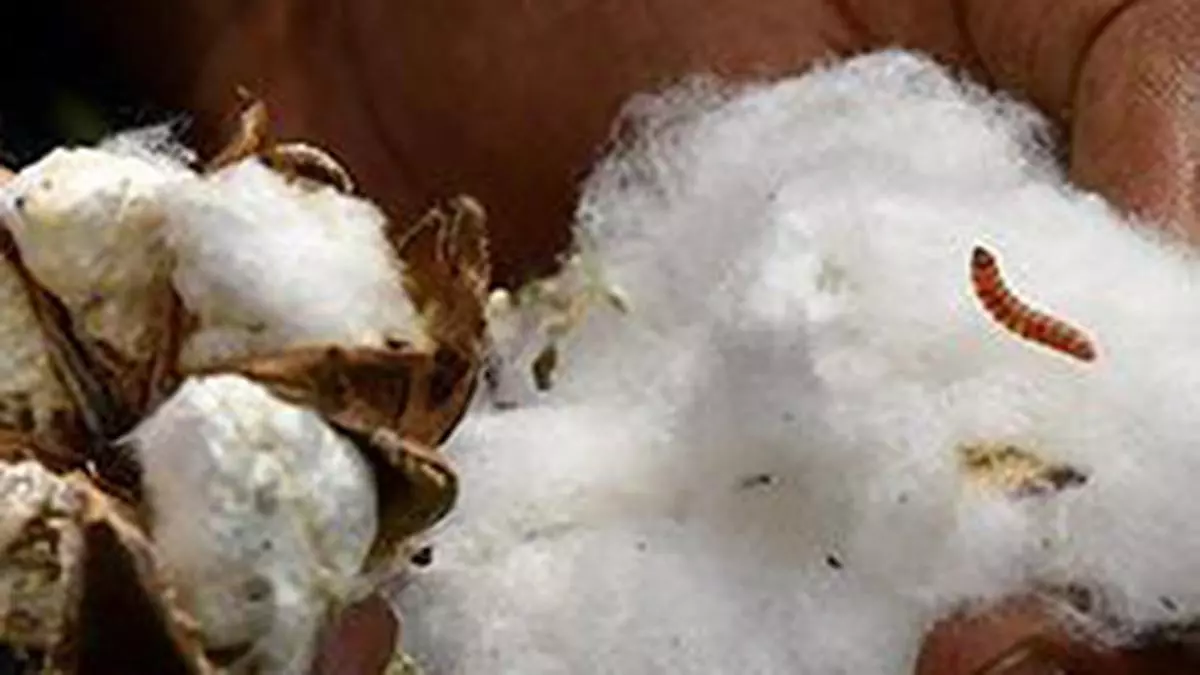Bt cotton helps increase yield by 3-4 quintals per acre: Govt in Lok Sabha
A study by Indian Council of Agricultural Research (ICAR) – Central Institute for Cotton Research (CICR), Nagpur, has found that the usage of Bt cotton can increase the yield by 3-4 quintals per acre.
In a written reply in the Lok Sabha on Tuesday, Ramnath Thakur, Union Minister of State for Agriculture and Farmers’ Welfare, said the study conducted by ICAR-CICR observed a yield difference of 3-4 quintals per acre with the adoption of Bt cotton. Further, the ICAR-CICR study revealed that the increase in income with the adoption of Bt cotton is due to yield increase and reduction in insecticide cost against the cotton bollworm.
ICAR-CICR conducted a study to evaluate the impact of Bt cotton in Maharashtra during 2012-13 and 2013-14. It also conducted study on impact of Bt cotton on soil ecology.
During the period of survey, the incidence of bollworms infestation reduced drastically and also decreases in number of insecticide application from eight to four. The reply said that ICAR-CICR studies had shown no adverse effect of Bt cotton cultivation on soil ecological parameters.
According to the Minister, current net return from Bt cotton is estimated at ₹25,000 per hectare in rainfed situation with the adoption of suitable agronomy. With the rapid adoption of Bt cotton by the farmers, currently more than 96 per cent area under cotton cultivation is occupied by the Bt cotton.
‘One Scientist, One Product’
To a query on ICAR, Bhagirath Choudhary, Union Minister of State for Agriculture and Farmers’ Welfare, said the ICAR has advised its scientists to work on the targeted approach of ‘One Scientist, One Product’ to improve research productivity and outputs in the field of agriculture, animal husbandry, fisheries and allied sectors.
Agricultural scientists are engaged in different in-house and externally funded research projects and work in team mode. Technologies, models, concepts, approaches, methodologies, publications, etc., are the outputs from the research projects.
Each research project produces such outputs / products depending upon the scope of the project. He further said that 100 new seed varieties and 100 farm technologies in 100 days are part of the Centre’s 100-day action plan.
During the past 10 years, total 150 bio-fortified varieties have been developed by ICAR, including 132 of field crops and 18 of horticultural crops.
ICAR pact
Replying to a separate question, Choudhary said ICAR has signed agreements with some private companies in the areas of mutual interest such as scaling up of developed crop varieties, transfer of technologies and capacity building. The memoranda of understanding were signed for technology dissemination, hence no issues related to intellectual property right are associated with these partnerships. No financial cost was incurred by ICAR.
He said there are about 176 memoranda of understanding with the farmer organizations for enhancing capacity building and technology dissemination.
APMC
To a query on Agricultural Produce Market Committee (APMC) regulated mandis in the country, Ramnath Thakur said there are 7085 APMC-regulated markets in the country. Of these mandis, Maharashtra has a maximum of 929, followed by Uttar Pradesh at 633.
Agriculture marketing being a state subject, states after assessing the requirement based on production, marketable surplus and existence of traders etc., used to establish APMC markets. He said the Government has been always supporting the idea of strengthening of APMCs and making them more competitive through improving services and infrastructure.
MSP
Replying to a question on MSP (minimum support price), Thakur said the Government fixes MSPs for 22 mandated agricultural crops on the basis of the recommendations of the Commission for Agricultural Costs and Prices (CACP).
On the MSP value paid to the farmers, he said the Government paid ₹2.48 lakh crore during 2023-24 against ₹2.37 lakh crore in 2022-23.
